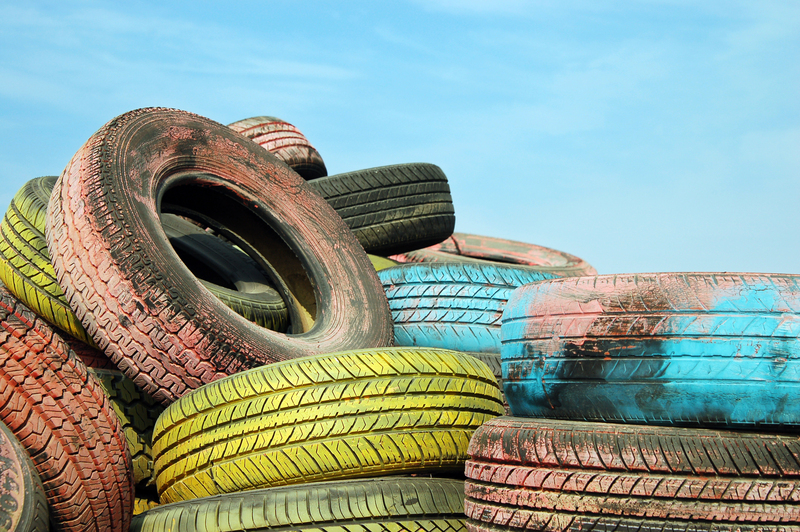The Ripple Effects of Improper Waste Disposal on Nature
Improper waste disposal is a significant issue that poses numerous threats to our environment. The consequences of mishandling waste are far-reaching, affecting everything from soil and water to wildlife and human health. This article delves into the ripple effects of inadequate waste management practices on nature and discusses potential solutions to mitigate these impacts.
Understanding Waste and Its Types
To address the issue of improper waste disposal, it's essential first to understand what waste is and the different categories it falls into. Generally, waste is categorized into several types:
- Municipal solid waste (MSW): Commonly known as trash or garbage, this includes everyday items such as product packaging, furniture, clothing, bottles, food scraps, newspapers, and batteries.
- Hazardous waste: These are materials that pose substantial or potential threats to public health or the environment, including chemicals, toxic substances, and medical waste.
- Organic waste: Biodegradable waste such as food and yard scraps.
- Recyclable waste: Materials that can be reprocessed and used again, like paper, metal, and glass.
Each of these categories requires different disposal methods to ensure environmental safety and sustainability.

The Environmental Consequences of Improper Waste Disposal
Soil Contamination
Soil plays a critical role in supporting plant life and maintaining ecosystems. When waste, particularly hazardous waste, is disposed of improperly, it can lead to soil contamination. This occurs when harmful chemicals seep into the ground, diminishing soil quality and affecting plant growth. The long-term effects of soil pollution include reduced agricultural productivity and loss of biodiversity.
Water Pollution
Improper waste disposal contributes to significant water pollution. When waste is dumped in water bodies or near waterways, it introduces pollutants and toxins that contaminate both surface and groundwater. This contamination affects aquatic life, leading to the death of fish and other marine organisms. Furthermore, polluted water can enter the human supply, posing severe health risks including gastrointestinal diseases and neurological disorders.
Impact on Wildlife
Wildlife is greatly affected by the ripple effects of improper waste disposal. Animals may ingest waste materials, mistaking them for food, leading to poisoning, digestive issues, or even death. Plastic waste, in particular, poses a significant threat to marine animals who can become entangled or choke on plastic debris. On land, improperly disposed of waste attracts animals like rodents, which can lead to increased wildlife conflict and spread of diseases.
The Broad Impacts on Human Health
Human health is intricately linked to the health of our environment. When waste is improperly managed, the consequences eventually affect human populations:
- Air quality deterioration: Burning waste releases toxins and pollutants into the air, which can cause respiratory infections, cardiovascular diseases, and worsen pre-existing conditions like asthma.
- Spread of disease: Accumulated waste can become a breeding ground for disease vectors like mosquitoes and rodents, leading to outbreaks of diseases such as dengue fever, cholera, and leptospirosis.
- Waterborne diseases: As mentioned earlier, water contamination from waste disposal can lead to widespread ailments among communities.
Economic and Social Implications
Economic Costs
Improper waste disposal affects economies on multiple fronts. Cleaning up contaminated sites is costly and resource-intensive. Moreover, pollution can harm industries that rely on natural resources, such as fishing and agriculture, leading to further economic losses.
Social Implications
On a social level, communities affected by poor waste management often experience issues such as reduced quality of life, health disparities, and decreased property values. Areas with significant waste problems might also become less attractive to businesses, affecting local development and employment opportunities.

Strategies for Effective Waste Management
To counter these detrimental effects, effective waste management strategies must be implemented. Some key approaches include:
Reduction and Reuse
By reducing waste generation at the source, we can lessen the quantity of waste that needs disposal. Reusing items, such as shopping bags, containers, and clothing, extends their life cycle and reduces the demand for new products.
Recycling
Recycling is a powerful tool for minimizing waste. By converting waste materials into new products, we can conserve natural resources and reduce pollution. Communities should be encouraged to participate in recycling programs, and efforts should be made to improve the efficiency and accessibility of these programs.
Implementing Safe Disposal Techniques
Properly disposing of hazardous and non-recyclable waste is crucial for preventing environmental contamination. This can include using modern landfill methods with liners and gas collection systems to prevent leachate and emissions, as well as establishing dedicated facilities for the treatment and disposal of hazardous waste.
Conclusion
The ripple effects of improper waste disposal on nature are profound and far-reaching. Addressing this issue requires a collective effort from individuals, communities, and governments worldwide. Effective waste management strategies can mitigate environmental harm and promote a sustainable future. By understanding the impacts of waste disposal, we can take informed actions to protect our ecosystems and ensure a healthier planet for future generations.
Whether it's through education, legislation, or personal choices, every step taken towards proper waste disposal helps to safeguard our environment, our health, and our world.